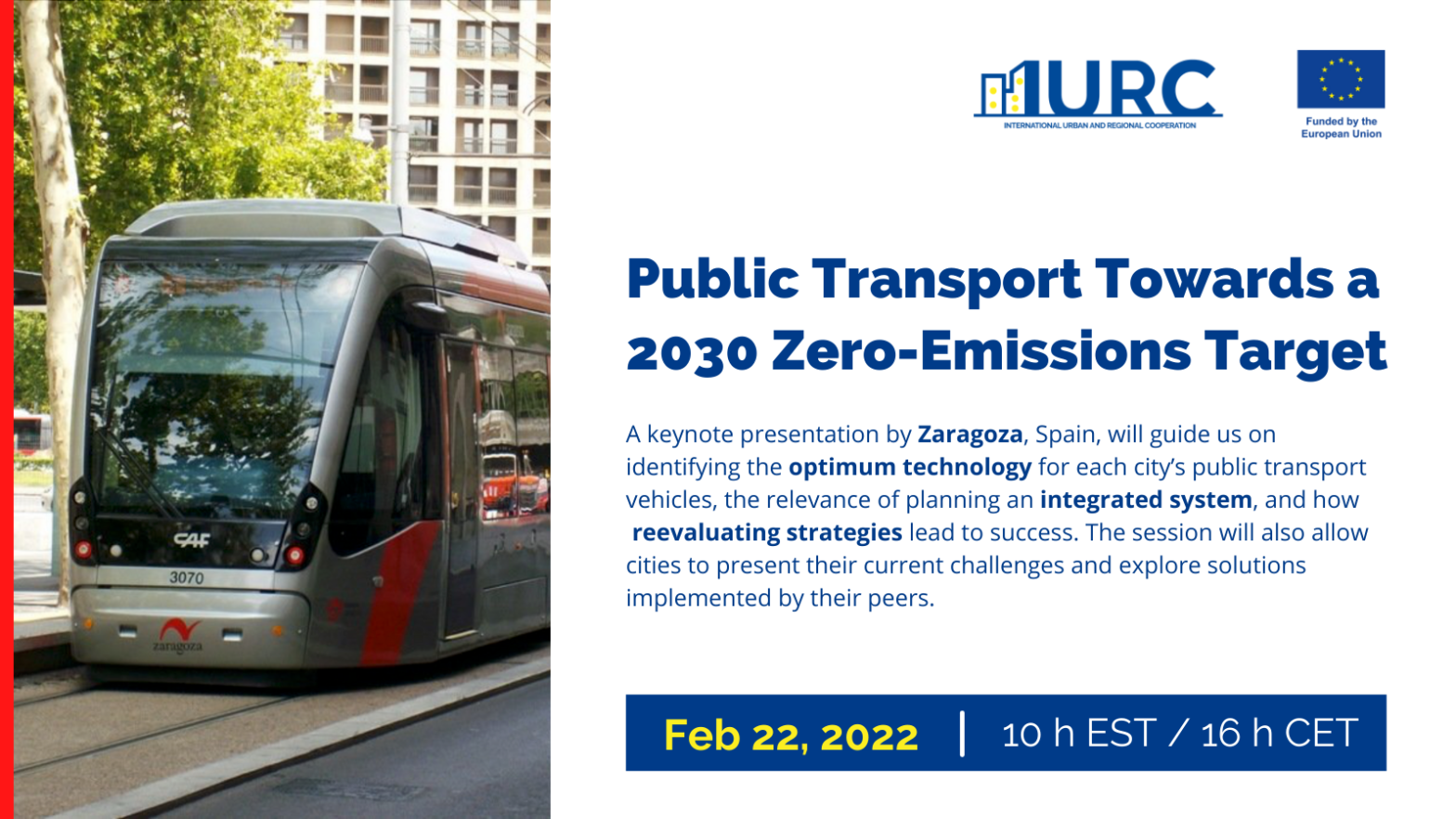On February 22nd, the IURC kicked off the thematic cluster of Sustainable Urban Mobility and Transport. Twenty-three people from nine different countries attended to discuss the challenges and solutions their cities are working on related to sustainable urban transport. Susana Arellano, Sustainable Urban Development Expert- IURC North America, moderated this session, and the keynote presentation was given by Miguel Ángel Ania, Senior Technical Advisor of the Zaragoza City Council.
Miguel Ángel’s presentation provided an overview of the evolution of their public transport strategy to reduce emissions significantly. He spoke about the economic feasibility of the tram and the city’s move towards electric and hydrogen-fueled buses.
The keynote presentation was followed by short interventions by six other EU and North American cities talking about challenges, successes, and strategies related to public transport and low-emission delivery zones. Speakers included:
Pedro Fernández López, Madrid
Ewa Lutogniewska, Metropolis GZM
Jennifer Amstrong, Ottawa
Claudia Brizuela, San Diego
Ariana Vito, Santa Monica
Philis Naslund, Umea
These are the 5 most important takeaways:
- Shift to Hydrogen Buses: Zaragoza City Council has opted for hydrogen buses as a sustainable alternative to address pollution concerns, with a focus on reducing private vehicle usage and promoting non-polluting public transportation infrastructure.
- Transition from Trams to Electric Buses: While electric trams were initially successful in Zaragoza, economic viability issues and the creation of a public transportation divide led the city to shift its focus to electric buses. The municipality found electric buses to be economically favorable and plans to have 1 in 5 buses in their fleet that are electric by the end of 2022.
- Comprehensive Public Transport Network: Zaragoza is developing a new bus network with the goal of increasing commercial speed, reducing travel times, and boosting public transport users. The aim is to create a system that allows reaching any destination within the city with a maximum of two transfers, akin to successful models in Barcelona and Moscow.
- Intermodal Transport Solutions: Zaragoza is combining its sustainable public transport initiatives with various intermodal solutions, including a new traffic control center, integrated software applications, an app for visually impaired individuals, and the establishment of over 200 electric charging points. These initiatives are aimed at enhancing the overall efficiency, accessibility, and sustainability of the city’s transportation system.
- Innovative Urban Initiatives: Beyond transportation, Zaragoza is embracing innovative urban initiatives such as drone distribution projects, participation in the European Hyperloop Network, and a unique citizen-focused tree planting project. These efforts contribute to the city’s commitment to sustainability, technological advancement, and environmental well-being.
You may find below the presentations:
Presentation – Public Transport towards a 2030 Zero Emissions Target – Zaragoza
